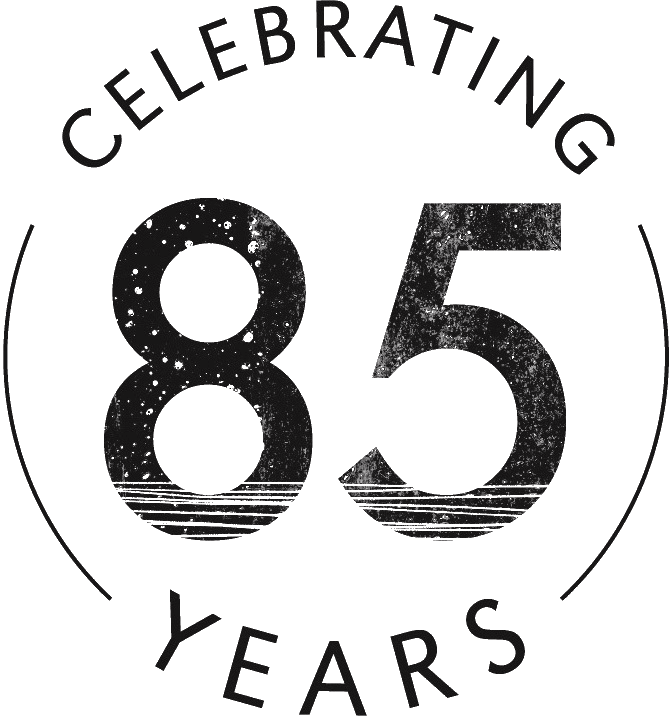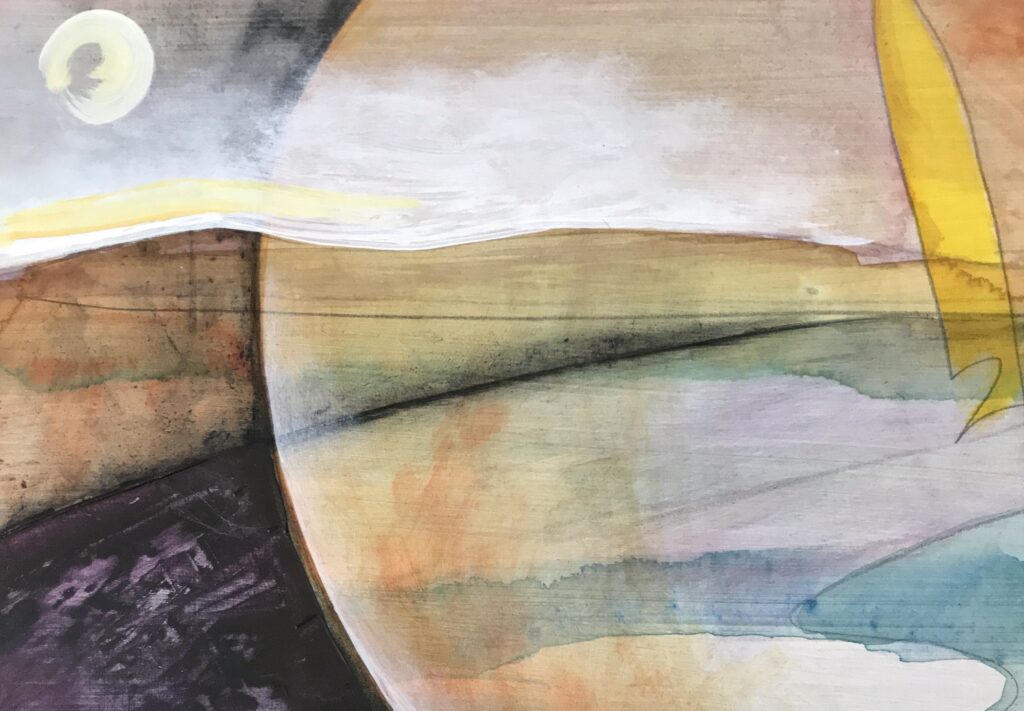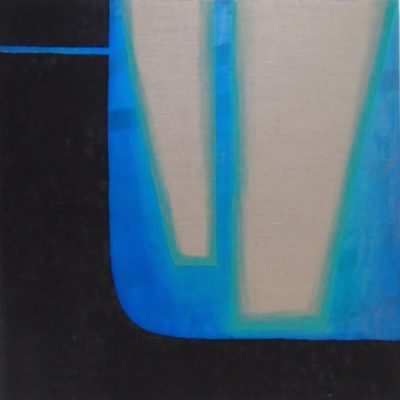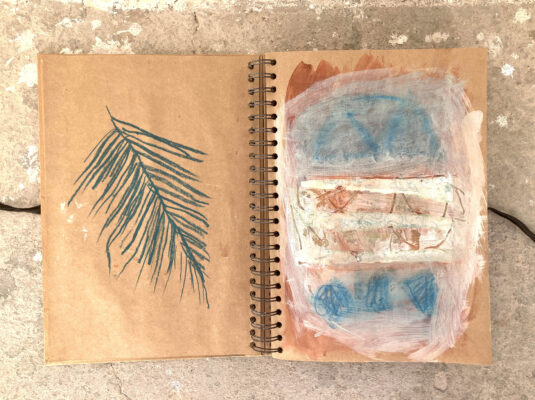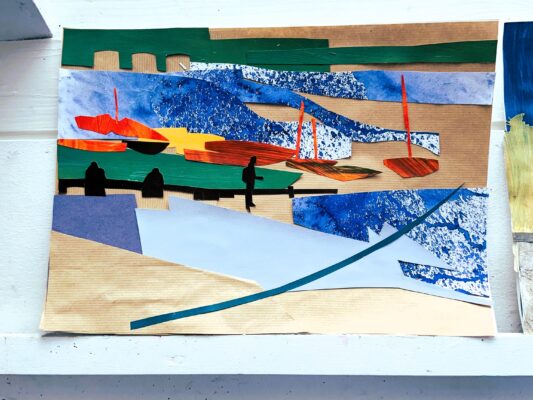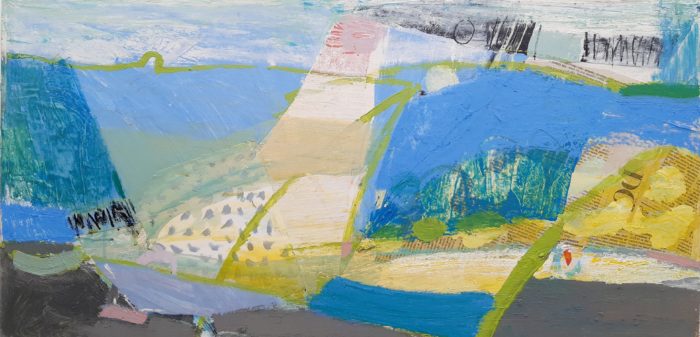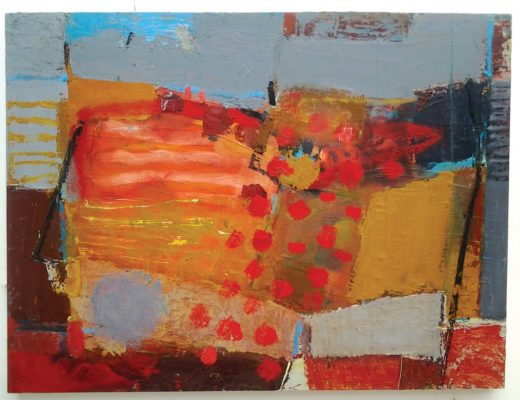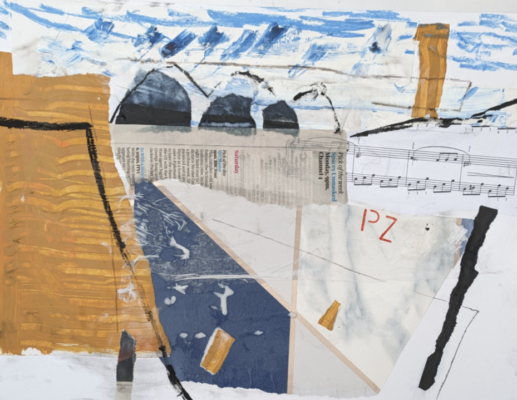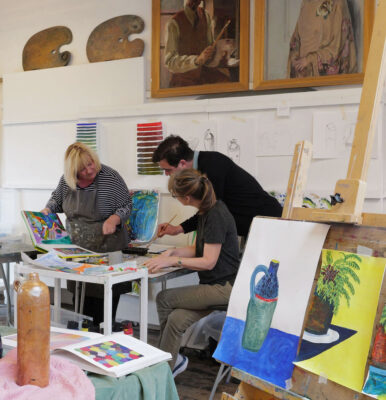Course details
Communicate with the Spirit of Place and explore the roots of abstraction in the work and ideas of Piet Mondrian.
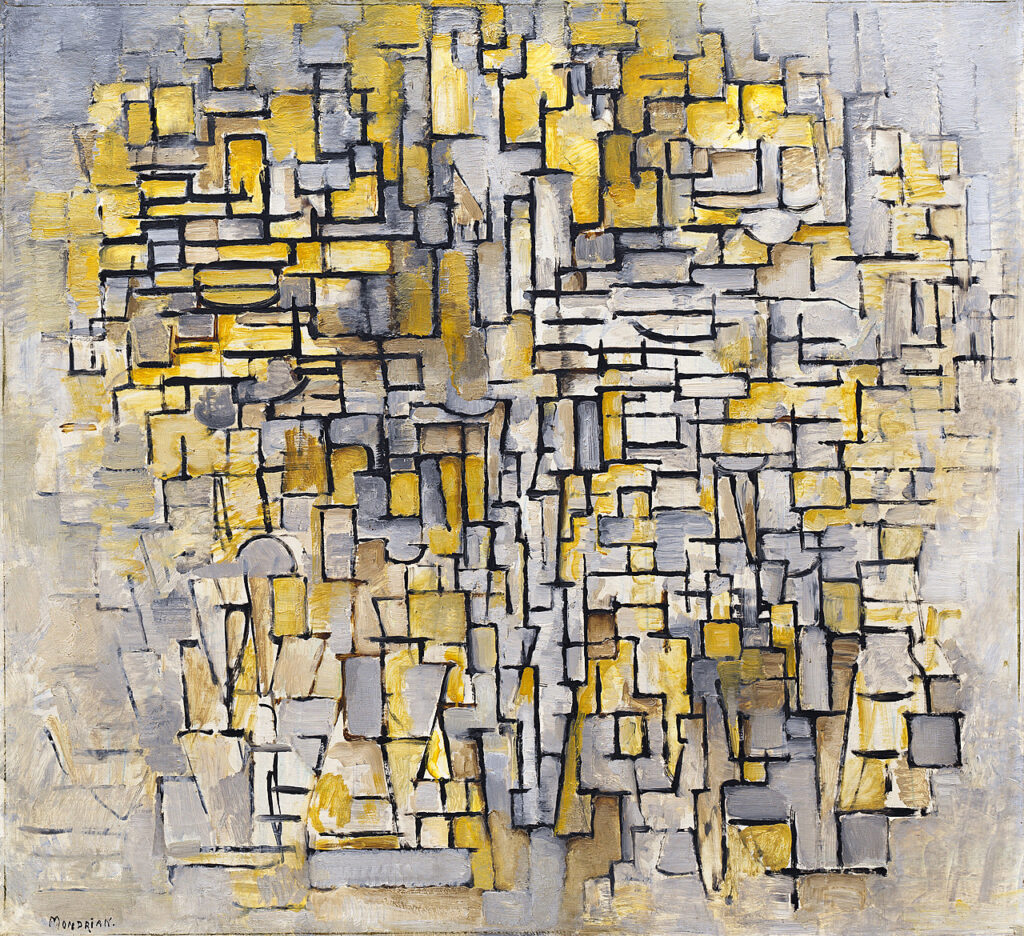
Piet Mondrian gained recognition as a pioneer in the realm of 20th-century abstract art due to his transition from figurative painting to an increasingly abstract approach. Eventually, he arrived at a stage where his artistic expression was distilled into basic geometric elements, a process largely influenced by the philosophy of the Theosophists.
In this workshop we will begin in the studio by discussing some of Mondrian’s ideas, then head out into the landscape of St Ives to sketch what we see.
Returning to the studio, create several abstract images by applying Mondrian’s ‘simplify to abstraction’ technique. After applying gouache paints to sketches we will observe the order in which the colours in our paintings are read and interpret them using the ‘Key Scales of Colour’ chart, which has its roots in Theosophy. Develop your paintings further, to create a Tarot spread, which can be interpreted by each participant at their leisure.
This workshop has been designed to complement the ‘Surrealism, Magic and The Spirit of Place’ workshop taking place in the morning. However, this can still be enjoyed as a standalone class.
Taught by
What to Bring
All materials are provided. As we may work outdoors for some of the duration of the workshop, please wear sensible shoes and bring a coat or sunhat as appropriate.
Timings and Breaks
17th September
The workshop starts at 13:30pm and finishes at 16.30pm, please aim to arrive ten to fifteen minutes before the start time. We will serve tea and coffee during the workshop.
FAQs
Studio Courses
How can I get help in choosing a course?
Our friendly expert staff are always happy to discuss your needs and our courses in more detail to help you with your decision. Please call us on 01736 797180
How do I get my work home?
Tutors have special techniques for transporting oil paintings and the school has plastic folders available in our shop for £3.50 or do bring a portfolio.
For international students we are happy to arrange transportation of your work back home.
What do I need to bring?
Absolutely nothing! All materials and aprons are provided although some people do like to bring their own set of brushes.
What do I do for lunch?
Courses allow an hour’s break for lunch and there are numerous places nearby or you are welcome to bring a packed lunch into the studio.
What times do courses run?
Most of our courses start at 10am and end at 4.30pm on the first day. Subsequent days we start at 9.30am ending at 4pm.
Weekend Courses run 10am – 4pm on the first day but the final day starts at 9.30 and ends at 3.30 with a short lunch break to enable people to get home that evening.
Do you have to be experienced to come to the School?
The School is a very friendly and welcoming place for all ages and experience. Our drop-in life classes and August half-day workshops are ideal for those wanting to have a go for the first time. Most of our longer courses are also fine for novices.
If any of the courses do need a bit of experience we flag this up in the brochure and on the website.
Booking a Course
How can I reserve a place?
We will hold a provisional reservation for 24 hours if you give us a call whilst you find accommodation. Otherwise please book online or by telephone 01736 797180.
You can reserve a place with a £100 deposit; balance is due 12 weeks before course start date.
About St Ives
Where do I park?
The nearest long stay public car parks are the Island and Barnoon Long Stay Car Park, both a 5 minute walk away. In the peak summer months it may be easier to park at Trenwith Car Park by the leisure centre and walk down into town. If you don’t fancy the walk up the hill at the end of the day there is a shuttle bus which runs from outside the cinema.
How do I get there?
Public Transport: If you are coming from further afield the main train line runs into St Erth which is a 15 min taxi ride away or you can take the St Ives Bay Line which runs approx. every 30 minutes. The School is a 10 minute walk from St Ives station.
Driving: M5 will take you to Exeter where we recommend that you take the A30 across Bodmin Moor and into Cornwall. After passing Hayle, leave the A30 at St Erth roundabout for St Ives. Turn right at the second roundabout. This road will take you through Lelant and Carbis Bay into St Ives.
Where can I stay?
St Ives has a huge selection of hotels, guest houses and self catering accommodation to choose from. Please browse the art holidays St Ives section on our website and give us a call if you would like any help.
